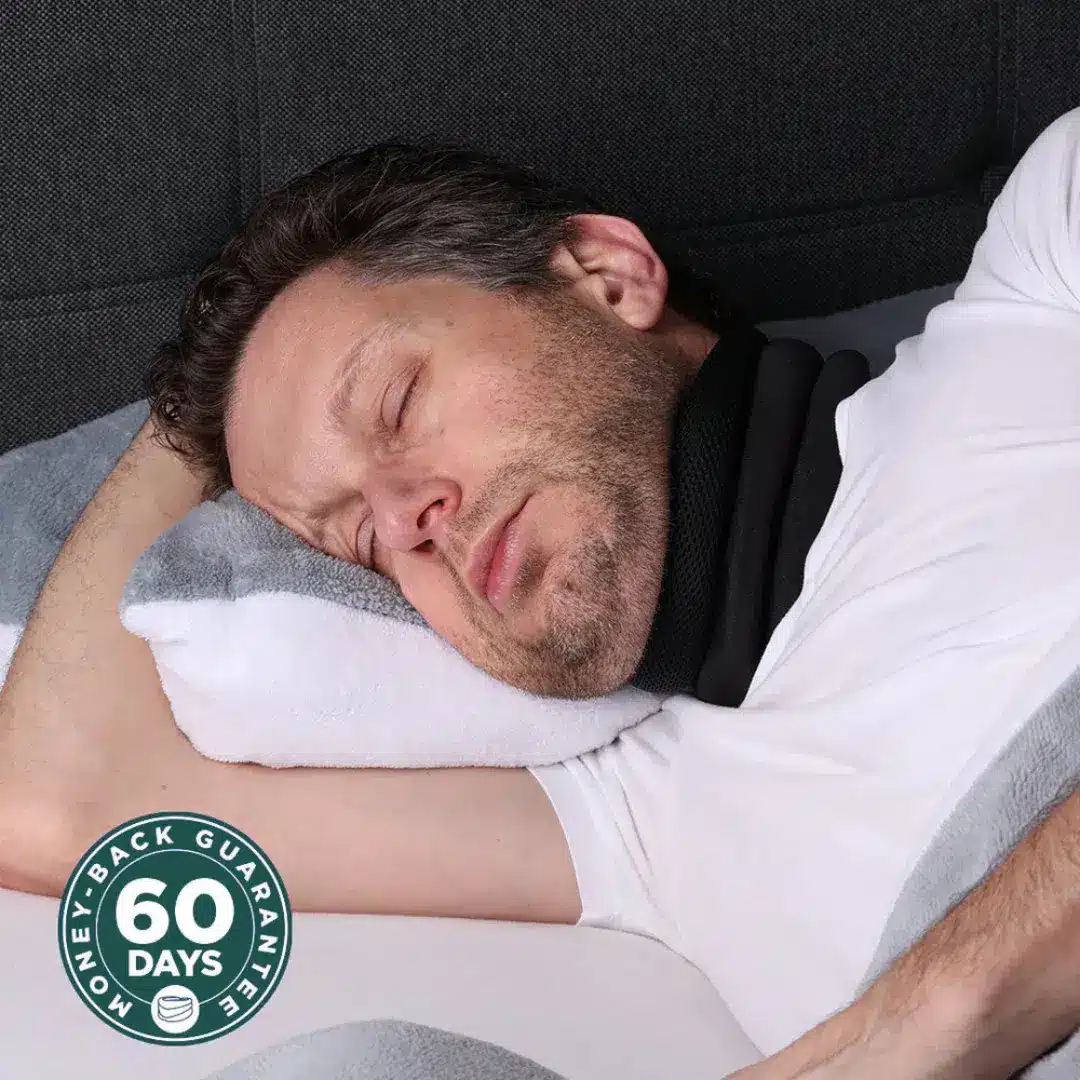As a sleep physician, my passion is helping people achieve deep, restorative sleep and overcome the obstacles that stand in the way—snoring, sleep apnea, neck pain, and poor posture among them. Over the years, I’ve tested and recommended countless products that claim to improve sleep quality, but only a select few have truly delivered.
Today, I want to share my detailed, first-hand review of the Vitavix Neck Support—a device that has impressed me with its thoughtful design and real-world results for both my patients and myself.
Table of Contents
- Why Neck Support Matters for Better Sleep
- First Impressions: Unboxing and Design
- Key Design Features
- My Experience: Testing the Vitavix Neck Support
- How Does Vitavix Work?
- Practical Tips for Getting the Most Out of Vitavix
- Who Should Consider the Vitavix Neck Support?
- Limitations and Considerations
- My Verdict: Why I Recommend Vitavix Neck Support
Why Neck Support Matters for Better Sleep
Before diving into my experience with Vitavix, it’s important to understand why neck support is so vital for sleep health. The cervical spine, or neck region, is a delicate structure that not only supports the head but also helps keep the airway open. Poor neck posture during sleep can:
-
Narrow the airway, making snoring and sleep apnea worse
-
Cause or increase neck pain and stiffness
-
Lead to restless sleep and frequent awakenings
Traditional solutions like CPAP machines, dental appliances, or even surgery are effective for some people, but they can be invasive, uncomfortable, or intimidating. That’s where non-invasive, ergonomic support devices like the Vitavix Neck Support come into play.
First Impressions: Unboxing and Design
When I first received the Vitavix Neck Support, I was immediately struck by its modern design and quality packaging. The device is compact, lightweight, and comes with a washable cover—a detail I always appreciate for hygiene.

Key Design Features
-
Ergonomic Shape: Contoured to fit the natural curve of the neck, providing gentle but firm support.
-
Adaptive Memory Foam: Soft to the touch yet resilient enough to hold its shape all night.
-
Adjustable Fit: Velcro straps make it easy to customize for different neck sizes and sleep positions.
-
Breathable Fabric: The cover is made from a moisture-wicking, breathable material to prevent overheating.
All these features combine to create a product that feels premium and well-engineered, not just another generic sleep aid.
My Experience: Testing the Vitavix Neck Support
Night One: Immediate Comfort
On the first night, I was pleasantly surprised by how natural the Vitavix felt. Unlike rigid cervical collars or bulky pillows, it provided support without restricting my movement. I tend to shift between side and back sleeping, and the brace adapted seamlessly to both positions.
Week One: Noticeable Changes
After a week of consistent use, I noticed several positive changes:
-
Reduced Neck Stiffness: I woke up with less tension and discomfort in my neck and shoulders.
-
Improved Sleep Quality: I experienced fewer awakenings and longer stretches of deep sleep.
-
Quieter Nights: My partner reported a significant reduction in my snoring—a benefit I hadn’t expected to be so pronounced.
Patient Feedback
I recommended the Vitavix Neck Support to several patients dealing with mild to moderate snoring and chronic neck pain. The feedback was overwhelmingly positive. Most found it comfortable, easy to use, and effective in reducing both neck discomfort and snoring frequency.
How Does Vitavix Work?
The Vitavix Neck Support works on a simple but effective principle: maintaining proper neck alignment during sleep. By gently supporting the neck and keeping the airway open, it addresses two major contributors to poor sleep:
-
Airway Obstruction: When the neck bends unnaturally, the airway can become partially blocked, leading to snoring or apnea. The Vitavix helps keep the airway open by supporting the jaw and neck in a neutral position.
-
Muscle Tension: Poor posture strains the neck muscles and ligaments, resulting in pain and restless sleep. The brace alleviates this by distributing pressure evenly and minimizing unnecessary movement.
Practical Tips for Getting the Most Out of Vitavix
-
Adjust for Fit: Take time to customize the brace to your neck size and preferred sleep position.
-
Consistency Matters: Use the support nightly for at least a week to allow your body to adjust.
-
Pair with Good Sleep Hygiene: Maintain a regular sleep schedule, avoid caffeine before bed, and keep your sleep environment cool and dark.
-
Monitor Results: Track your sleep quality and snoring frequency—many users notice improvements within days.
Who Should Consider the Vitavix Neck Support?
-
Chronic Snorers: Especially those with positional snoring (worse when lying on the back).
-
Individuals with Neck Pain: Those who wake up with stiffness or pain in the neck and shoulders.
-
Travelers: Its portability makes it ideal for use in hotels or on flights.
-
Anyone Seeking Preventive Support: If you want to maintain good neck posture and prevent future problems.
Limitations and Considerations
No product is perfect, and the Vitavix Neck Support is not a substitute for professional medical evaluation in cases of severe sleep apnea or persistent pain. If you suspect you have sleep apnea (loud snoring, choking, excessive daytime sleepiness), consult a sleep specialist for a comprehensive assessment.
My Verdict: Why I Recommend Vitavix Neck Support
After extensive personal testing and feedback from my patients, I can confidently say that the Vitavix Neck Support is a valuable addition to the sleep health toolkit. It’s comfortable, easy to use, and offers meaningful benefits for snoring and neck support. While it may not replace medical therapies for everyone, it fills an important niche for those seeking non-invasive, supportive solutions.

Dr. John Williams is a sleep specialist. He offers Sleep Telemedicine to help people deal with various sleep disorders, particularly sleep apnea.
Graduating from the University of Zagreb’s School of Medicine, he investigates the cellular mechanisms of vascular endothelial dysfunction in obstructive sleep apnea. He also addresses cardiovascular complications of sleep deprivation and COPD. So if you have any sleep problems, let Dr. John Williams help you out.